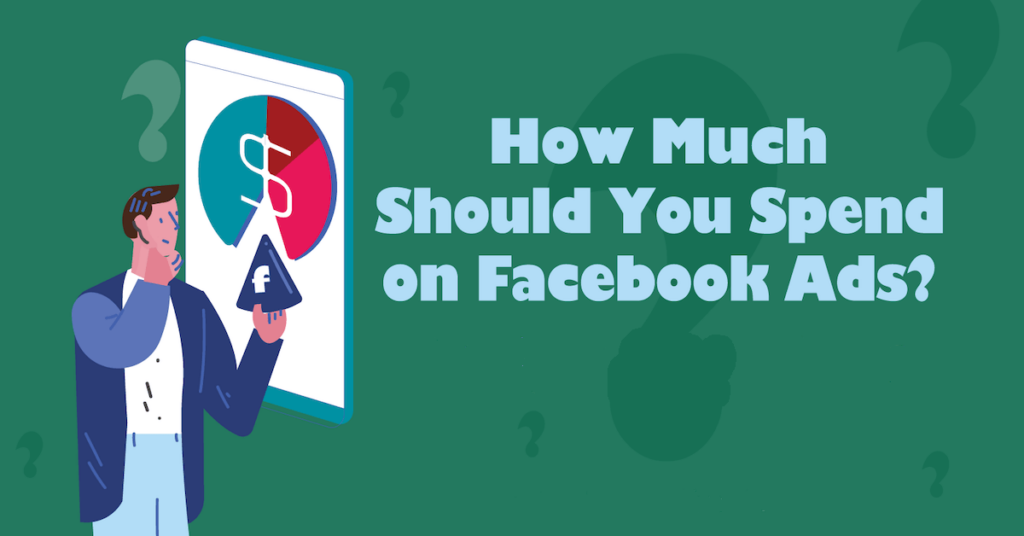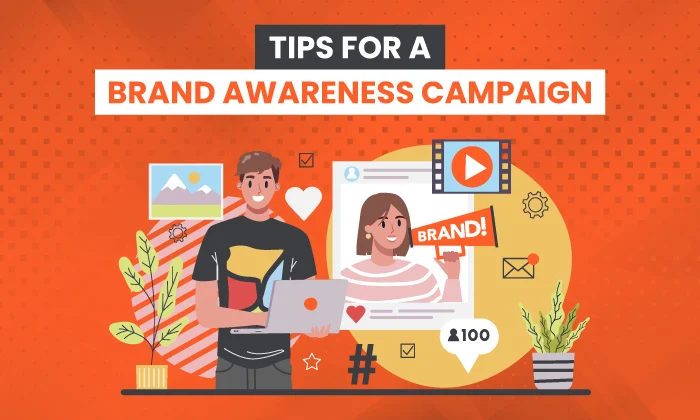Facebook advertising offers a wide range of possibilities, aiding in attracting new customers, brand promotion, content promotion, and more. This is evident in Facebook’s substantial revenue of approximately 28.3 billion US dollars in the third quarter of the previous year – a testament to the effectiveness of their ads! Yet, determining the precise amount to invest in Facebook ads poses a complex question, which we will delve into in this article.

What determines how much you should spend on Facebook ads
Determining the appropriate budget for Facebook ads relies on several key factors. Although there isn’t a straightforward answer to this question, you can assess each factor to gain insight into the optimal spending for your Facebook ad campaigns.
The initial factor to contemplate is the scale of your brand.
Size of your brand
Companies like Nike and Apple can directly promote their products through sales campaigns because they are already well-known and trusted. However, for small brands, it is usually necessary to spend advertising dollars on brand awareness campaigns before creating sales adverts. By creating sales adverts right away, small brands are targeting people in the “conversion” stage of their buyer journey, rather than starting at the “awareness” stage. Instead, small brands need to create valuable content for their target audience (blogs, eBooks, videos, etc.) to nurture them through their buyer journey and slowly win their trust. Only then can they start to think about creating conversion campaigns that invite them to commit to their offers.

If you’re developing advertisements for a well-established brand, you might contemplate initiating conversion campaigns directly. This is because a larger audience may already be in the “consideration” or “conversion” stages of their buyer journey. However, it’s advisable to undergo a testing period initially, providing ample valuable content before attempting to promote your products or services directly to them.
The average cost of your products
The pricing of your products directly correlates with the level of trust you should establish before venturing into conversion campaigns. When dealing with high-ticket items, such as a $5,000 laptop, it’s crucial to prioritize building trust. If you encounter an advertisement for such a pricey machine from an unfamiliar company, you’re unlikely to engage without hesitation. In contrast, when presented with ads from reputable brands like Dell, HP, or Apple, the familiarity and trust associated with these names significantly increase the likelihood of clicking.
Conversely, for more affordable items like thick winter socks, brand awareness is less of a concern. In the quest for warmth during a cold winter, customers are generally less discerning about the source of the socks due to their lower cost. Therefore, companies selling inexpensive products can potentially skip the emphasis on brand awareness and proceed directly to conversion campaigns to initiate profit generation.
Your marketing budget
The allocation of your marketing budget significantly shapes your capacity for spending on Facebook ads. For newly established brands, a substantial portion of the budget should prioritize crafting compelling content and promoting it through social campaigns, alongside other inbound marketing strategies. This approach aims to showcase the brand’s helpfulness and credibility. As a brand gains more traction, a balanced strategy involving both brand awareness and conversion campaigns can be explored. Vigilance over the Return on Ad Spend (ROAS) in conversion campaigns is essential to prevent unnecessary financial leakage.
For brands already familiar to their audience, advertising holds the potential for a robust return on investment, provided that the ads are well-designed and precisely targeted (for examples of poorly executed Facebook ads, see here). A positive return on ad spend signals an opportunity to maximize investment by expanding the scope of advertisements, leveraging the established brand awareness and trust. In such cases, the question becomes, why not invest as much as feasible into additional adverts?
Your goals
While the desire for growth is common among companies, the extent and approach to achieving it can vary significantly. Companies equipped with robust infrastructure and support systems for aggressive business expansion will naturally allocate a higher budget to Facebook advertising compared to those prioritizing a more cautious approach to fortify their foundations.
Regardless of your specific circumstances, aligning your advertising goals with broader business objectives is crucial. This alignment guides the selection of campaign types, such as reach, traffic, or conversions, and aids in defining the desired outcomes from these campaigns. Furthermore, it assists in estimating the appropriate budget allocation for your advertising initiatives.
So—how much should you spend on Facebook ads?
The cost of Facebook ads depends on various factors such as the target audience, ad content, and the bidding strategy used. According to a study by Pricespider, it is recommended to budget at least $5,000 to determine if Facebook advertisements will work for your business. However, this is just a general recommendation, and the actual amount you should spend on Facebook ads depends on your business goals, target audience, and the type of ad you want to run.
A study by Hootsuite suggests that the average cost per click (CPC) for Facebook ads is $0.97, while the average cost per thousand impressions (CPM) is $7.19. However, these are just benchmarks, and the actual cost of your Facebook ads will depend on your specific business needs.
Certainly, if you find yourself with a larger budget, it’s advisable to consider increasing your investment, particularly when running a conversion campaign. Facebook’s algorithm operates most efficiently when it has a minimum of 50 conversions per week to effectively target individuals and achieve the campaign’s objectives. It’s important to note that conversions extend beyond mere purchases and can include actions such as page views, phone calls, or adding a product to a wishlist. Initiating campaigns with these simpler conversions can help boost your overall conversion count and provide valuable data for Facebook’s algorithm.
Once you’ve consistently achieved 50 conversions per week, you can then progress to more ambitious goals, such as actual purchases. This is the opportune time to establish specific revenue targets that contribute to the substantial growth of your business.
To determine your Facebook ads budget, you need to make two choices: how to divide your ad dollars between all of your ad sets (campaign budgets vs. ad set budgets) and how each ad set spends its allotted money (lifetime budget vs. daily budget) AdEspresso provides a free ad budget calculator that can help you determine how much you should spend on your next Facebook ad campaign.
In conclusion
The allocation of your Facebook advertising budget is contingent on several crucial factors and varies from one individual to another. If you possess confidence in your ability to create compelling ads and are committed to consistently measuring and optimizing your campaigns, it’s advisable to invest as much as your budget permits. If the idea of a substantial investment makes you apprehensive, a prudent approach is to begin with a modest budget and gradually increase it for campaigns that demonstrate positive performance. Over time, you’ll develop a portfolio of high-performing campaigns that not only cover their costs but also contribute to enhancing the overall profitability of your business.
